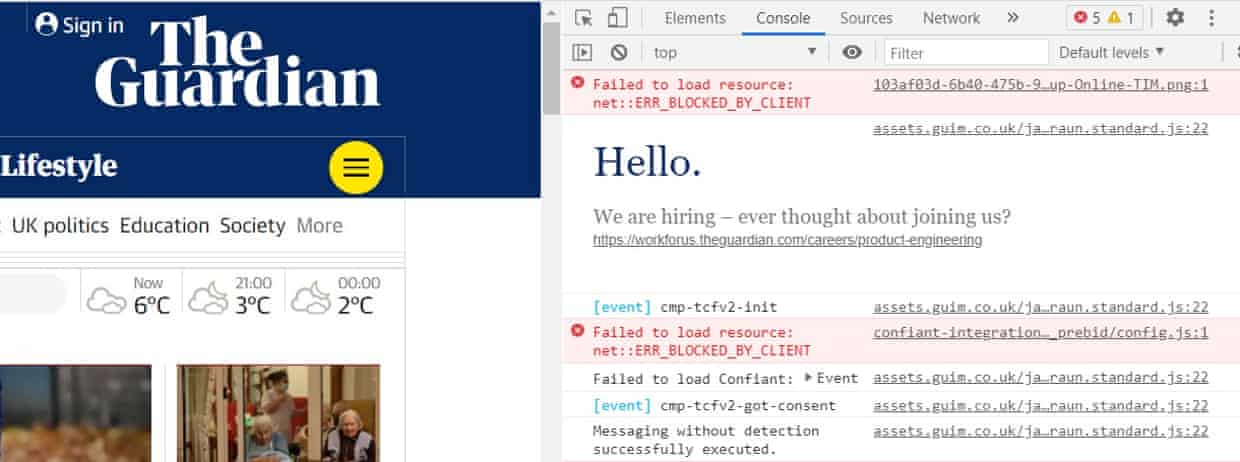Jonathon Herbert is a software developer who enjoyed working with computers as a kid using programming languages such as BASIC to play around with and build video games. Years later, he put that hobby aside in favour of an MA in history at Bristol University. Then, Jonathon realised he wasn’t keen on a career in academia, so returned to his first love: computers.
How did you make the switch to software development?
At the time, I was looking at things like Code Academy and other documentation online; nothing too complicated, but it was enough to be able to build some websites and I ended up with a portfolio I could show potential employers.
I’d read that it was a good idea to write personal letters when applying for internships, so I sent some to local employers in Bristol sharing my work, and explaining how interested I was in software development. A company called Newicon, a software company, took me on for a three-month paid internship, after which they offered me a full-time role. I stayed with the company for four great years.
What made you move to London and the Guardian?
Part of my enjoyment in being a developer is the learning process and the ability to feed that curiosity outside my day-to-day work. One of the ways a developer might satisfy their curiosity about how a website is built is by using the browser’s built-in tools to explore how it’s been put together.
I’ve been a Guardian reader for a very long time so of course, at some point, I was going to take a look. When I clicked on ‘developer tools’ the first thing I saw at the top of the screen was this big, friendly ‘hello’.

I had been feeling that it was time for a new challenge in my career, so I answered that question immediately by clicking on that link and applying. The Guardian took me on and here I am almost three years later!
What have you enjoyed the most about your time here so far?
I’ve found that developers tend to be curious about how things work, and are motivated to learn and try new things. The Guardian is good at fostering an environment that facilitates that. We’re given space to pursue the things that interest us. For example, if you’re interested in pursuing a side project, or facilitating a collaboration across teams, then you are given the freedom to achieve those goals alongside your daily responsibilities. The Typerighter project started in this way.
We also have monthly meet-ups for client-side and server-side developers where we explore new technologies and discuss problems that people are having. Developers may also organise learning groups around particular technologies – a few are working their way through Functional Programming in Scala at the moment. All of these groups are organised by the developers themselves.
What projects are you working on right now**?**
My team maintains the tooling that our journalists use to produce their content.
At the moment we’re putting the finishing touches to Typerighter, a tool that helps us check that whatever we type conforms to the style guide.
In addition to that, we’re looking at how to improve how our journalists work together across our tooling. Working from home, after all, has changed the way the newsroom communicates. So, that may mean helping journalists work on the same article pages simultaneously without stepping on each other’s toes, or providing better ways to communicate when desks are coordinating work across applications. There are lots of opportunities that we’re excited to explore.
How have you found the remote working experience over the last year?
I’m lucky to have found it manageable, but I personally miss the office very much. It’s one of the reasons why I wanted to work at the Guardian. Being around people who share a passion for journalism, from editorial to product and engineering, is inspiring. There is a general buzz of activity around the place and you always feel like there’s something interesting happening. I really love, for example, morning conference, which is a daily news meeting led by our editor-in-chief, Katharine Viner. It’s open to anyone in the organisation and you hear about what stories editorial is planning to publish that day. I look forward to returning to Kings Place and having that feeling of being in the newsroom again.
What would you say would be the biggest draw for anyone thinking about working at the Guardian?
I would say having the opportunity to learn and grow in your career and having the latitude to pursue the things that interest you. You feel like you’re contributing to an organisation that’s important. On top of that, there’s the fact that you’d also be working with amazing people. I feel that the combination of all those things at one company can be rare to find and that’s what the Guardian offers.
The development of digital products is central to the Guardian. You could be building the products that showcase our progressive and independent journalism, crafting the tools that journalists use to write their stories, developing the services that allow those stories to be distributed across the globe, or safeguarding our financial future.
If you’re interested in joining our Product and Engineering department, please visit the Guardian News & Media careers page.
